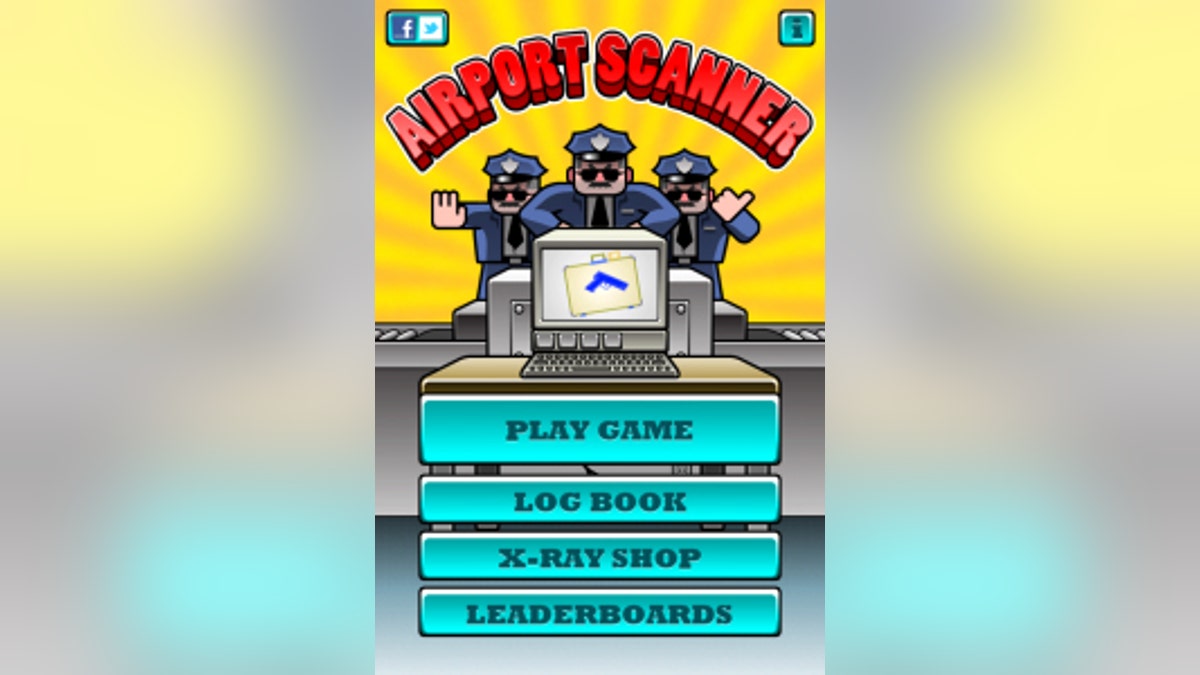
(Image courtesy of the Kedlin Company)
ATLANTA — Could playing a video game on your smartphone improve airport security? The creators of the mobile game “Airport Scanner” are helping Duke University researchers crowdsource vast amounts of data on how the human brain finds (and misses) key items during searches.
In the Airport Scanner game, players earn points by tapping on illegal items as simulated x-ray images of passenger bags roll across their screens. The game collects anonymous data on how the players perform, providing the Duke team with far more information than they could ever hope to obtain in a traditional lab setting.
“We get about a million trials a day from Airport Scanner,” said Professor Stephen Mitroff of the Duke Institute for Brain Sciences. “And we’re up to (a total of) about 2.3 billion trials of data.”
By analyzing all this gameplay data, researchers have been able to identify some of the common mistakes the human brain makes while searching for things.
“Within the game, half the bags, roughly, have a target,” Mitroff said. “But there are hundreds of different target types. And some of them are really rare — they just don’t appear very often. And what we found was those ones were much more likely to be missed.”
The problem only gets worse when multiple targets appear in the same bag — something researchers have noticed in both the game and real life.
“So, you’re more likely to miss the gun if there’s also a water bottle in the bag than if the gun was the only contraband item in the bag,” Mitroff said.
The game, available for iOS and Android, was created by the Kedlin Company in Bellevue, Wash., purely for entertainment. Mitroff downloaded it out of curiosity, but quickly realized its research potential and contacted the developer.
“I have to say I was a bit surprised at first, that Airport Scanner would be used to actually improve airport security,” said Kedlin Company CEO Ben Sharpe. “Using game data for research is such a novel idea that I was thrilled to participate and be on the forefront of the research community.”
Airport Scanner collects and shares gameplay data in accordance with the iTunes user agreement. The information does not personally identify players, but does allow researchers to track their performance over time.
“People are playing the game and we get the data for free,” Mitroff said.
Mitroff, who has partnered with the Transportation Security Administration (TSA) on previous projects, said he hopes to incorporate the Airport Scanner game into future work with the agency.
TSA officials would not comment on the Airport Scanner game, but told Fox News the agency requires its transportation security officers (TSOs) to complete a minimum of 100 hours of initial training, followed by annual recertification tests.
“TSOs are trained and routinely tested on their ability to identify threat items on the x-ray monitor, including dangerous weapons and explosives,” a TSA spokesperson said.
Although, the Airport Scanner game simulates the work of TSOs, Mitroff believes crowdsourcing psychological research through video games could lead to improvements in other endeavors, such as search and rescue and cancer detection.
His research team has published its findings in the Journal of Experimental Psychology: Human Perception and Performance. While touting the ability to collect vast amounts of data, the Duke researchers concede that crowdsourcing through mobile apps lacks the same control they would have in a traditional lab “over who is playing and under what conditions.”
For example, the study’s authors write that “there is no way to know what percentage of the data is collected while participants are on the toilet.”
Mitroff believes there will always be a place for both types of research, but says the ability of mobile apps to crowdsource a large amount of data in a short period of time has great potential to advance the field of psychology.
“People may be out there collecting exactly what (data) we need,” Mitroff said. “If we could partner with them in the right ways, we could answer questions that have eluded us. And people could have fun while they’re doing it.”








































